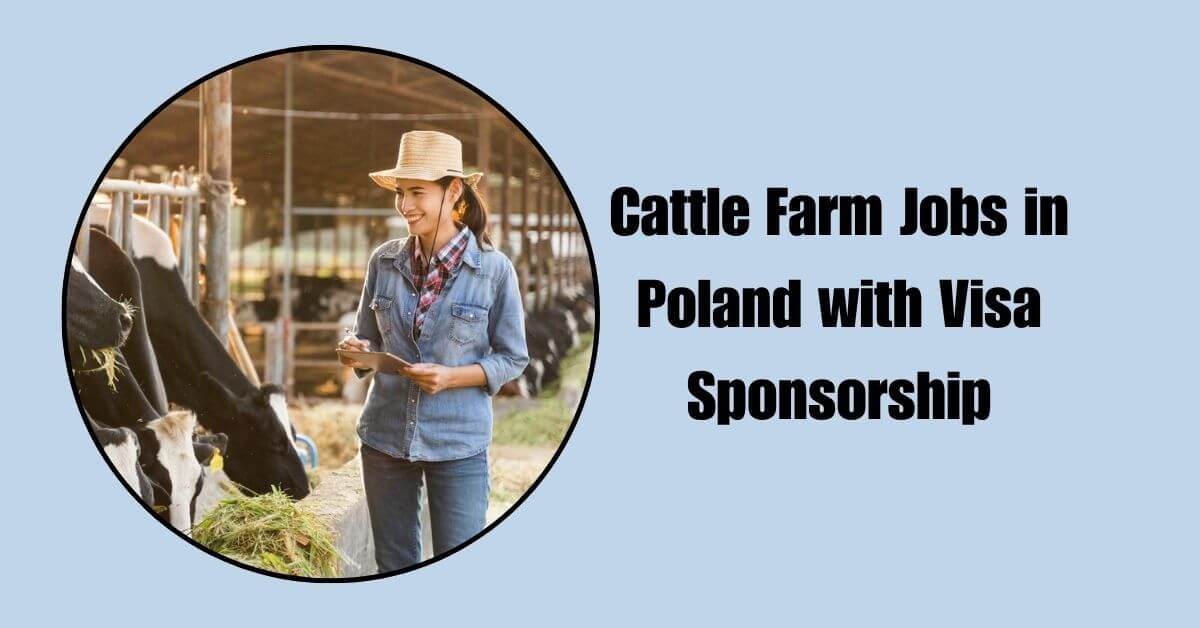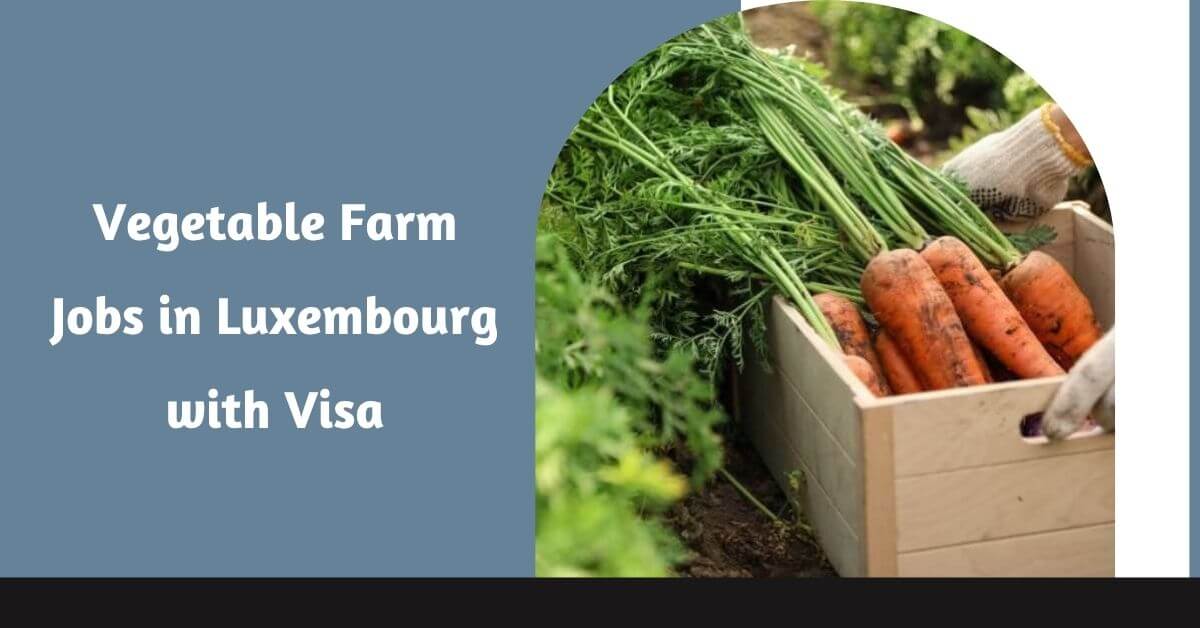Flexible Babysitting Jobs in Poland 2025 – Apply Online Now
For both locals and tourists looking to make some extra cash or spend their leisure time overseas, Polish babysitting jobs provide a wide variety of options. Poland is an excellent place for people who want to care for children because of its various cultural attractions and plenty of chances in the city. Polish babysitting encompasses more than just making sure kids are safe and healthy; it also involves exposing them to things like customs, Polish history, or the local tongue.
Furthermore, babysitting is a well-established industry in Poland that requires trustworthy and dependable people.
Key Points:
- Job Title: Babysitting
- Country: Poland
- Experience: 1-2 years
- Accommodation: Yes
Requirements:
Workers in Poland are required to follow specific guidelines that, in general, guarantee the security and appropriate upbringing of children left with a caretaker.
- First of all, it is essential that the babysitters speak Polish fluently because it can be crucial for them to communicate effectively with their clients.
- Any babysitter should ideally be certified in first aid and cardiopulmonary resuscitation to guarantee prompt response.
- Prior experience working in child care or a similar field is particularly beneficial because it demonstrates the candidate’s ability to handle a variety of issues and may even indicate an understanding of the needs of different age groups.
- Furthermore, a background check typically involves confirming references and making sure there are no criminal records.
- To ensure that there is no need for concern while leaving children with babysitters, it would be prudent for them to ensure that they are trustworthy, responsible, and always return at the appointed hour.
Check More: Visa Sponsorship Meat Packaging Jobs in Poland
Benefits of Jobs:
- Flexible Working Hours That Fit Your Schedule: Choose part-time, evening, weekend, or full-time shifts based on your availability.
- No Formal Education or Degree Required: Babysitting jobs are accessible to individuals with basic skills, a caring nature, and a love for children.
- Opportunities for Live-In or Live-Out Positions: Select work arrangements that suit your lifestyle, including accommodation-included roles.
- Attractive Hourly Pay with Extra for Nights and Weekends: Earn competitive wages with higher rates for holidays, evenings, and overnight stays.
- Work in Private Homes or Through Trusted Agencies: Choose between freelance babysitting or employment through reliable childcare platforms.
- Legal Employment Opportunities with Proper Contracts: Many families and agencies offer official contracts, ensuring your work is legally protected.
- Gain Valuable Childcare Experience: Build hands-on experience that can help you pursue future careers in teaching, nursing, or child development.
- Multicultural and Family-Friendly Work Environments: Work with both local and expatriate families, improving language and cultural exchange.
- Opportunities to Learn or Improve Polish Language Skills: Enhance your communication abilities and boost your CV with language practice.
- Accommodation and Meals Offered in Live-In Jobs: Save on living costs with free housing and food when residing with the employer’s family.
- Positive and Meaningful Work Experience: Babysitting allows you to make a real difference in a child’s development and happiness.
- Referral Bonuses and Tips: Earn extra income through client recommendations, repeat bookings, and generous family tips.
- Safety and Support from Reputable Agencies: Trusted babysitting platforms provide background checks, safety training, and ongoing support.
- Pathway to Long-Term Nanny or Au Pair Roles: Standout babysitters can transition into full-time, high-paying nanny or family assistant positions.
- Work in a Safe, Clean, and Child-Friendly Country: Poland offers a stable, family-oriented society with growing demand for childcare professionals.
Role of Babysitters in Poland:
- Because they provide value by giving their parents care and priceless assistance, babysitters are a significant part of families’ lives in Poland.
- In Polish culture, babysitters are now expected to do additional household tasks like cleaning in addition to keeping an eye on kids while their parents are gone.
- Since this ingrained nervousness disintegrates before the familiar picture and gestures make it secure, many youngsters find that being left alone with a babysitter is a time of comfort, even trust.
- In addition to making sure that every kid in their care is safe, healthy, and developing properly, they should engage them in creatively stimulating activities and create a safe space where unstructured play is pleasurable.
- Because they take early childhood development classes while they are in school, Polish babysitters are typically highly qualified and well-trained for the job.
- In addition to helping with academics, they encourage creativity and excellent hygienic practices.
- Additionally, babysitters typically act as a mediator between parents and their young charges, facilitating appropriate communication and maintaining a peaceful home environment.
Types of Jobs:
Poland offers a wide range of babysitting positions that give independent contractors the chance to care for young children while honing their talents.
- People are usually offered part-time babysitting jobs with monitored hours that vary greatly based on job specifications and other criteria. This kind of job can be done in a variety of settings, including as on the weekends or in the evenings when parents are usually out.
- Students or those planning to work as secondary earners may enjoy this type of job, which is common. Full-time or live-in babysitting is another type of establishment where the professional has been a resident and provides everyday assistance.
- The liturgical and temporal aspects of their work were highly valued; in addition to priests, they also served as elected officials. In addition, on-demand childcare is occasionally provided for procedures or special occasions. For people who prefer working sporadic shifts, these positions offer a great deal of freedom.
How do you find Job?
If you want to work as a babysitter in Poland, there are a number of ways to acquire a job there.
- Signing up for services that let you look for a babysitter is one of the greatest options.
- Another career option is to network inside your neighborhood through local parent cooperatives, friendships, and neighbors.
- You can use a flyer strategy by creating leaflets and distributing them at local businesses, community centers, and schools.
- Additionally, you can think about working for a professional babysitting service that assists kids in finding the “right pair of hands” to watch them.
How to Apply for Flexible Babysitting Jobs in Poland?
For those who are eager to enter this field of business, providing childcare services is a terrific chance. You don’t need to search any farther because babysitting jobs in Poland offer a fulfilling opportunity to gain respect, experience the joy of positively impacting children’s lives, and gain an understanding of Polish culture.
Frequently Asked Questions:
Do I need qualifications to work as a babysitter in Poland?
While formal qualifications aren’t always required, experience with children and basic first aid knowledge are highly preferred.
Are flexible babysitting jobs available for foreigners in Poland?
Yes, many families and agencies hire foreigners, especially those who speak English or other foreign languages.
What is the average hourly rate for babysitters in Poland?
Babysitters typically earn between PLN 20 and PLN 40 per hour, depending on experience, location, and job duties.









